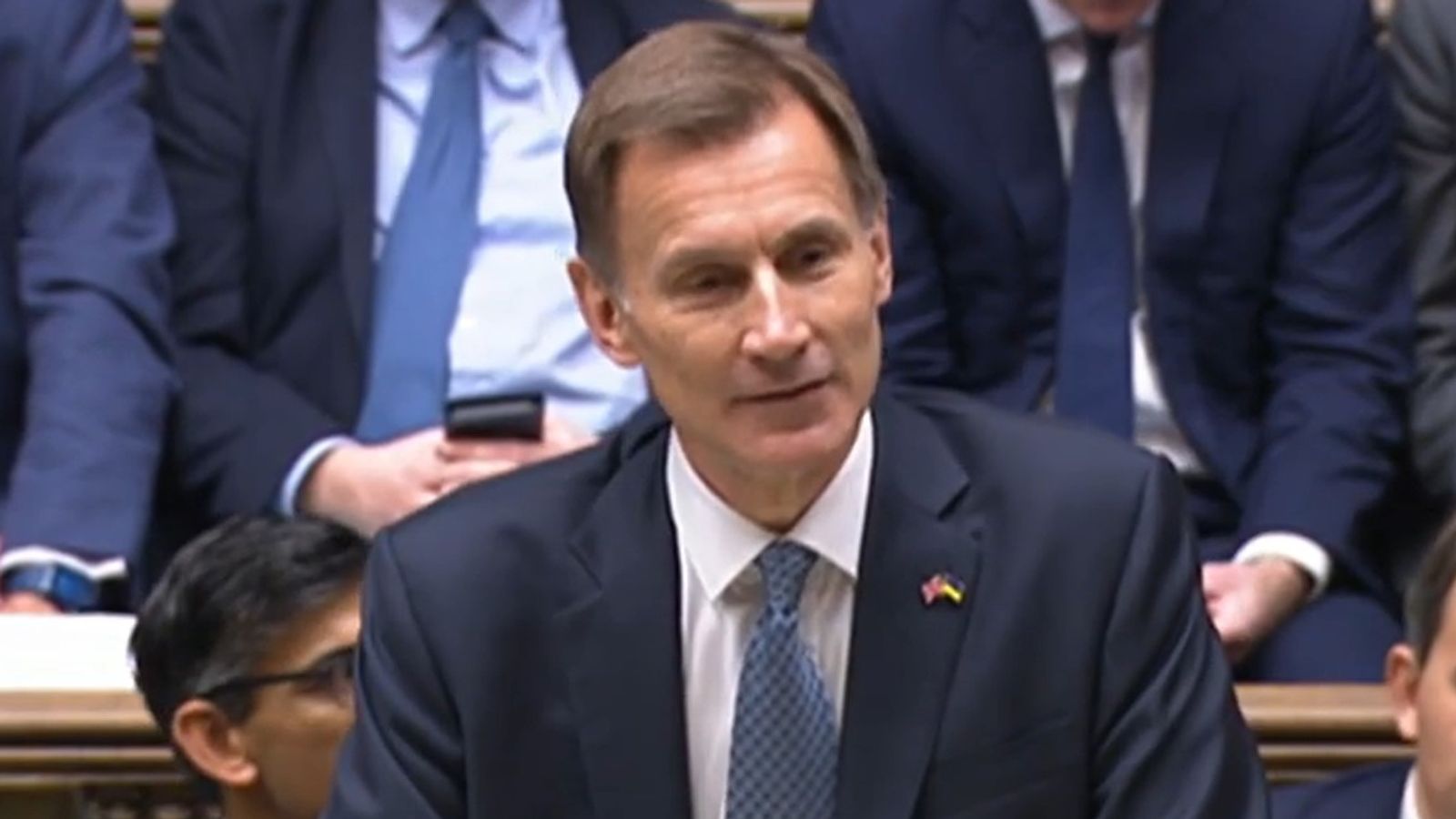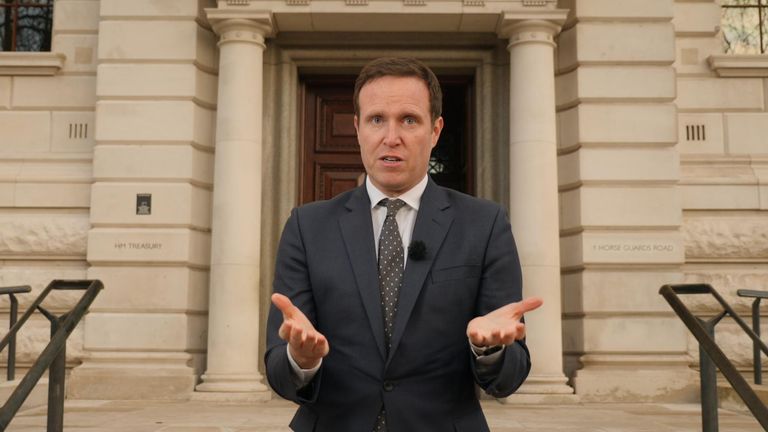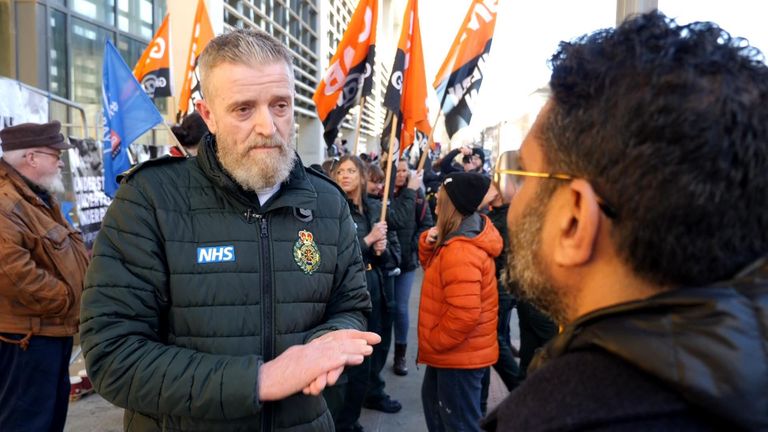Chancellor Jeremy Hunt has not ruled out increasing pay offers to public sector workers, but warned that giving more money to teachers and nurses could entrench high inflation.
Speaking as it was revealed the UK economy narrowly avoided recession in 2022, Mr Hunt also indicated he would resist pressure to cancel a planned cut to household energy support that will see typical bills rise by £500 to around £3,000 in April.
Asked if there were any circumstances in which he would consider increasing pay offers to avert more public sector pay strikes the chancellor told Sky News: “It’s not a no, but I’m saying we’ll talk about absolutely anything, except things that will dig in the very high inflation that is causing people to see the cost of their weekly shop go up and the value of their wages erode.
“We’ll talk about absolutely anything to resolve the strikes except measures that will entrench high inflation.
“We don’t think strikes are helpful, they’re very damaging and very disruptive. The best way to resolve these issues is to sit and talk and find a solution that doesn’t entrench the very inflation that is upsetting so many people.”
Many economists dispute the argument that increasing public sector pay can entrench inflation, but Mr Hunt said it was a key factor in holding down pay.
“We should listen to a very clear warning from the Bank of England governor on Thursday who said that if you fund higher wage settlements through borrowing, that is inflationary, and that’s why it’s a very difficult situation. We want to get back into a situation where people’s real wages are growing.”
On maintaining energy support, a measure that would reduce inflation for family budgets, he argued that continuing support at current levels would damage the public finances.
The cost to the taxpayer of existing support has proved much lower than initially forecast because wholesale gas prices have fallen, leading campaigners and the energy industry to call for support to be maintained.
“We are doing absolutely everything we can to help families through this difficult period,” Mr Hunt said. “We’re giving about £3,500 of support on average to every family in the country this year and last year, so it’s a massive amount, about £99bn.
Read more from Sky News:
Used car sales find reverse gear on supply squeeze
Broadband and phone bill rises to be investigated by regulator
“But we also have to be responsible with public finances. Because if we’re not we just give them a different pressure, which is higher interest rates as a result of the reasons. We look at everything we can do, but we won’t do things that lead to higher interest rates.”
The chancellor’s position on pay and energy reflects the dismal state of the public finances.
The official figures released by the Office for National Statistics earlier on Friday paint a grim picture of a stagnating economy with a dysfunctional public sector.
The Bank of England is forecasting a recession this year, albeit slightly less acute than previously, and forecast the UK will not recover to its pre-pandemic scale until 2026.
There is also acute pressure on Mr Hunt from businesses to incentivise investment and growth. Pharmaceutical giant AstraZeneca offered a stark example of the impact of government policy this week, citing rising corporation tax as the reason it has chosen to build a new manufacturing facility in Ireland not the UK.
Mr Hunt rejected the characterisation of the UK’s prospects.
“We believe that this country has some of the most exciting growth prospects anywhere if you look at our strengths in technology,” he said.
“Last year, we became only the third country in the world to have a trillion-dollar tech economy, our strengths are the life sciences and in clean energy where we’re a world leader in offshore wind. We think we have fantastic growth prospects.
“But to take to make the most of those we have to deal with our inflation issue which is over 10%, and for companies that want to invest high interest rates are a real disincentive.
“We need to get interest rates down. That was working with the Bank of England to deal with inflation. And then we think we have tremendous growth prospects.”


